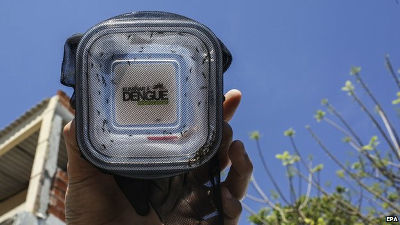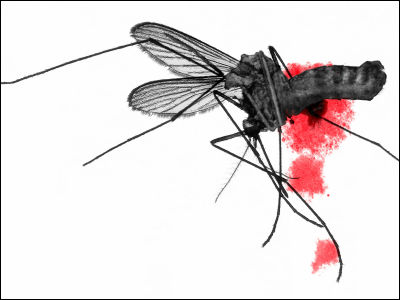``Super mosquitoes'' that carry infectious diseases while having strong resistance to insecticides are being born

Mosquitoes are known as insects that carry various infectious diseases, as they are said to be ``the creatures that have taken the most human lives''. A research team from Japan's National Institute of Infectious Diseases reports that dengue-endemic areas of Vietnam and Cambodia have mutations in local mosquitoes that make them highly resistant to common insecticides.
Discovery of super–insecticide-resistant dengue mosquitoes in Asia: Threats of concomitant knockdown resistance mutations | Science Advances
'Super' mosquitoes have now mutated to withstand insecticides, scientists say - ABC News
https://abcnews.go.com/International/super-mosquitoes-now-mutated-withstand-insecticides-scientists/story?id=95545825
Aedes aegypti is known to be a major vector of dengue, yellow fever , and Zika viruses that cause dengue fever. In order to destroy this Aedes aegypti mosquito, an insecticide called ' pyrethroid ' is used locally.
Pyrethroid is a type of neurotoxin that acts on the nerve cells of insects such as mosquitoes and amphibians and kills mosquitoes by causing abnormalities in the action potentials performed in the nerve cell membrane. Pyrethroids have little effect on mammals and birds, so they are often used as insecticides to exterminate mosquitoes, and the main ingredient is pyrethrin, an insecticidal ingredient extracted from pyrethrum . is also included.

According to the paper, resistance to pyrethroids is caused by mutations in the Vgsc gene, which encodes the molecular target of pyrethroids. The research team reports that among the 10 substrains of Aedes aegypti discovered, a strain with a Vgsc gene mutation called 'L982W' exhibits high resistance to the pyrethroid insecticide
According to the research team, more than 79% of the mosquitoes collected in Vietnam had the L982W mutation. Furthermore, the combination of L982W and other Vgsc gene mutations in Cambodian mosquitoes showed 'extreme' pyrethroid resistance.
It seems that the L982W gene mutation has not been detected outside of Vietnam and Cambodia, but the research team believes that it may gradually spread to other parts of Asia. It said it could pose a serious threat to eradication programs.

'It's important to be aware that the insecticides we commonly use may not be effective against mosquitoes,' said Shinji Kasai, head of the Department of Entomology and Medicine at the National Institute of Infectious Diseases. 'We need to continue monitoring, especially in Southeast Asia, so that we can take appropriate measures before this new variant spreads globally.'
Related Posts:







